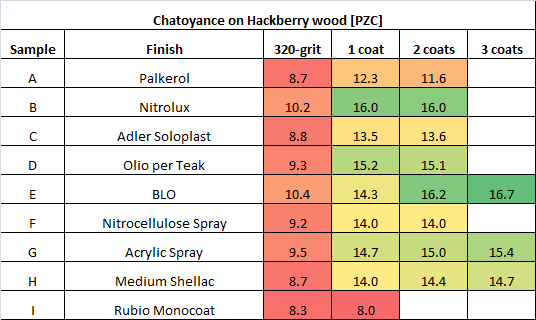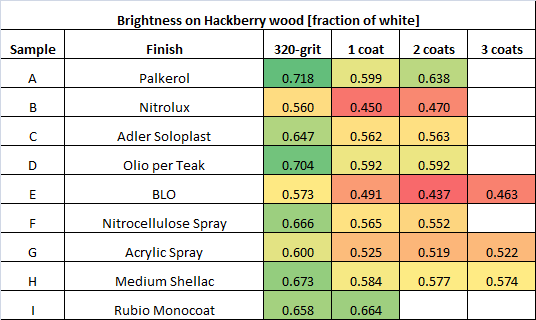This set of tests is aimed at understanding the effect of different finishes on Hackberry.
A set of 9 solid samples (from “A” to “I”) were employed; these start very similar PZC values. All samples were sanded to 320-grit.
A special thanks goes to company Veleca for supporting us with finish samples.
We tested these finishes:
Sample A: Veleca Palkerol (water based anionic polyurethane – floor finish)
Sample B: Veleca Nitrolux (thinner based ketone resin – classic furniture finish)
Sample C: Adler Soloplast (alkyd based finish)
Sample D: Veleca Olio per Teak (Tung oil based – exotic wood finish)
Sample E: Boiled Linseed Oil (BLO)
Sample F: Nitrocellulose spray lacquer (NCL)
Sample G: Acrylic spray lacquer
Sample H: Blonde Dewaxed Shellac “Medium” (2 parts in 13 parts of Alcohol)
Sample I: Rubio Monocoat
It was concluded that:
1) The best results are provided by Nitrolux and BLO, even if values are quite low (<17 PZC)
2) All these “clear” finishes, except for Rubio monocoat, significantly darken the surface
Tables below summarize the results in terms of chatoyance (PZC):

Tables below summarize the results in terms of brightness (fraction of white paper brightness):

Pictures below show the results:









